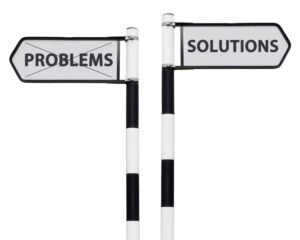Small businesses are the backbone of the economy, and in today’s digital age, their success often hinges on the software solutions they employ. With the myriad of options available, business owners find themselves at a crossroads between choosing custom IT solutions tailored to their specific needs or opting for off-the-shelf software that is readily available and, seemingly, less costly. In this post, we’ll explore the pros and cons of each approach to help small business owners make an informed decision.
Understanding the Landscape: Custom IT Solutions
Custom IT solutions are designed from the ground up to address the unique challenges and requirements of your business. They offer a personalized experience and can provide a competitive edge by optimizing your business processes and enhancing productivity.
Advantages of Custom IT Solutions
- Tailored Fit: Custom software is built to your specifications, ensuring that every feature is relevant to your business operations.
- Scalability: As your business grows, custom software can be modified to accommodate new challenges and opportunities.
- Integration: Custom solutions can seamlessly integrate with your existing workflows and systems, reducing friction and increasing efficiency.
- Competitive Advantage: By leveraging software that is unique to your business, you can differentiate yourself from competitors who may be using more generic tools.
Disadvantages of Custom IT Solutions
- Higher Initial Cost: Developing custom software requires a significant upfront investment.
- Time to Market: The time from conception to deployment is typically longer for custom solutions.
- Resource Intensive: Maintaining and updating custom software can require dedicated staff and resources.
Weighing the Options: Off-the-Shelf Software
Off-the-shelf software refers to prepackaged solutions that are designed to cater to the general needs of businesses. These are often mass-produced and can range from basic applications to comprehensive suite packages.
Advantages of Off-the-Shelf Software
- Cost-Effectiveness: With a lower initial price point, off-the-shelf software can be appealing for businesses on a tight budget.
- Quick Deployment: Prepackaged software is ready to use upon purchase, allowing for rapid implementation.
- Reliability: Established off-the-shelf solutions often come with a track record of reliability and are supported by a large user base.
- Regular Updates: Vendors typically provide updates and patches, ensuring the software remains secure and functional without additional cost.
Disadvantages of Off-the-Shelf Software
- Generic Features: The one-size-fits-all approach may not align perfectly with your business’s unique processes.
- Limited Customization: While some customization is possible, there are inherent limitations to how much you can alter an off-the-shelf product.
- Potential for Redundant Features: You may end up paying for features that are irrelevant to your business, complicating the user experience.
Making the Right Choice for Your Small Business
The decision between custom IT solutions and off-the-shelf software should be guided by several key considerations:
- Budget Constraints: Assess the financial resources available for your software investment.
- Business Needs and Complexity: Evaluate the specific needs of your business and the complexity of the processes you wish to manage.
- Growth Trajectory: Consider how quickly your business is growing and how that might affect your software needs in the future.
- In-House Expertise: Determine whether you have the in-house expertise to develop and maintain custom software or if you would need to outsource.
Conclusion
For small businesses, the decision between custom IT solutions and off-the-shelf software is not to be taken lightly. It is a strategic choice that can significantly impact operational efficiency and the bottom line. Custom IT solutions offer a personalized approach that can give your business a unique edge, while off-the-shelf software provides a cost-effective and quick-to-implement alternative. By carefully considering your business’s specific needs, budget, and future goals, you can make an informed decision that aligns with your long-term business strategy.

